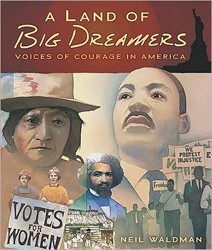When Felix discovers a whole carrot in his bowl of soup, he is convinced it is a sign that his parents, Jewish booksellers, are coming for him. It is 1942, and for three years and eight months Felix has lived a secret life in the Catholic orphanage where they hoped he would be safe. But when Mother Minka sadly tells Felix that the carrot is not a sign from his parents and they are not coming for him, he does not believe her. He decides he has to warn them that Nazis are burning Jewish books. Early the next morning, he slips out through the main gate and begins to follow the river home. At first, Felix makes excuses for the horrors he sees along the way. He tells himself, for example, that the soldier who fired at him didn’t mean t o and that maybe the half-naked people crammed into trucks are just going for a swim. Eventually, he understands it is not just Jewish books the Nazis hate — it is Jews. On his harrowing journey, Felix rescues Zelda, an orphaned six-year- old, and the two of them, along with other children, are sheltered briefly by a Jewish dentist who treats high-ranking Nazis. Inevitably, though, they all are locked into a boxcar and know they are on their way to a death camp. When a hole is accidentally punched through some rotted boards, they realize they have a chance to escape. Miraculously, Felix and Zelda survive their jump from the moving train. Lying in a field somewhere in Poland, Felix doesn’t know what the rest of his story will be — “It could end in a few minutes, or tomorrow, or next year…,” but however it turns out, he believes he has been lucky — more than once. For ages 12 and up.
Susan Kantor was a senior writer/editor for Girl Scouts of the USA, a children’s book editor, and a past judge for the National Jewish Book Awards in the illustrated children’s book category. She is a writer and a docent at the Rubin Museum in New York City, where she leads public and private tours.



